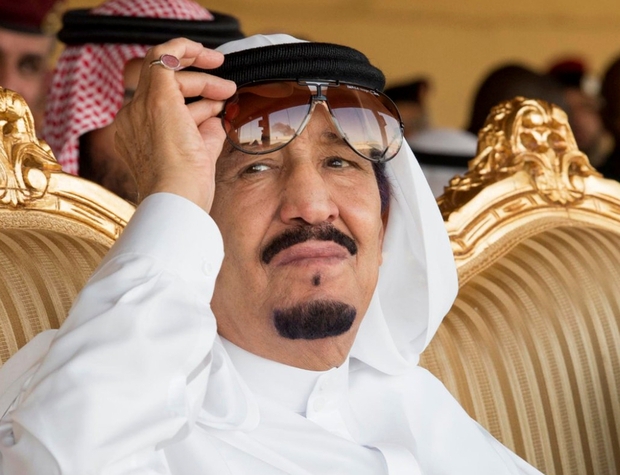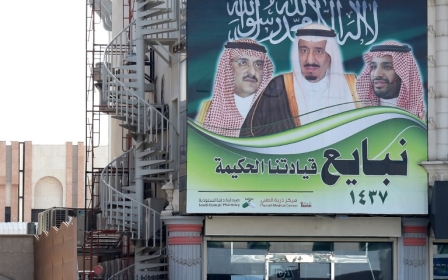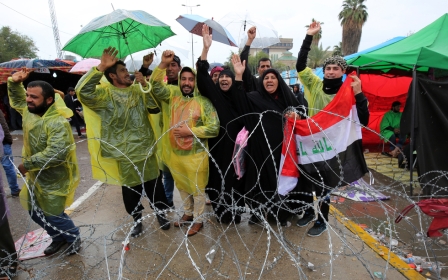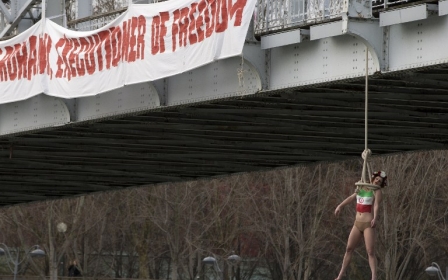Secret dealings of Middle East leaders exposed by Panama Papers leak

The secret offshore dealings of leaders of Saudi Arabia, Qatar, United Arab Emirates and Iraq have been exposed in huge leak of 11.5 million tax documents from Panamanian offshore law firm Mossack Fonseca.
An investigation into the documents by more than 100 media groups, described as one of the largest such probes in history, revealed on Sunday hidden offshore dealings in the assets of about 140 political figures - including 12 current or former heads of states.
The vast stash of records was obtained from an anonymous source by German daily Sueddeutsche Zeitung and shared with media worldwide by the International Consortium of Investigative Journalists (ICIJ).
Among 12 heads of state mentioned in the leak were King Salman of Saudi Arabia, former prime minister of Jordan Ali Abu al-Ragab, and two Qatari leaders - former prime minister Hamad bin Jassim bin Jaber Al Thani and Qatar's former emir Sheikh Hamad bin Khalifa Al Thani. Also featured were the president of the UAE, Sheikh Khalifa bin Zayed bin Sultan al-Nahyan, former president of Sudan Ahmad Ali al-Mirghani, and Ayad Allawi, ex-interim prime minister and former vice-president of Iraq.
The data contains secret offshore companies linked to the families and associates of Egypt's former president Hosni Mubarak, Libya's former leader Muammar Gaddafi and Syria's President Bashar al-Assad as well.
The documents reveal many Israeli connections and disclose people with Israeli citizenship as well as Israeli banks and entities having used the offshore law firm to register companies in tax havens around the world, Haaretz reported.
Several Israeli banks appear in the files, Haaretz said. Bank Hapoalim managed some of its trusteeship activities for trust funds through the law firm. This activity, carried out by means of the subsidiary Poalim Trust Services, closed down in 2011. The documents also contain much correspondence concerning Bank Leumi activity in Jersey in the Channel Islands.
Blacklisted interests
At least 33 people and companies in the documents had been blacklisted by the US for wrongdoing, such as some Iranian interests and those of Lebanon's Hezbollah, the ICIJ said.
One of the companies exposed in the leaked documents provided fuel for aircraft used by the Syrian government to bomb and kill thousands of its citizens, Haaretz said.
"These findings show how deeply ingrained harmful practices and criminality are in the offshore world," said Gabriel Zucman, an economist at the US-based University of California, Berkeley, and author of the book The Hidden Wealth of Nations: The Scourge of Tax Havens.
Zucman, who participated in the ICIJ investigation, said that the publication of the leaked documents should encourage governments to impose “concrete sanctions” on countries where such firms are registered and on institutions that provide confidentiality for companies using tax havens, Haaretz said.
The leaked data from 1975 to the end of last year provides what the ICIJ described as a "never-before-seen view inside the offshore world".
The investigation yielded the millions of documents from about 214,000 offshore entities, the ICIJ said. The source of the documents, Mossack Fonseca, is a Panama-based law firm with offices in more than 35 countries. It is the world’s fourth-biggest offshore law firm, the Guardian said.
Though most of the alleged dealings are said by the ICIJ to be legal, they are likely to have serious political impact on many of those identified.
Among the main claims of the ICIJ investigations:
- Close associates of Russian President Vladimir Putin, who is not himself named in the documents, "secretly shuffled as much as $2bn through banks and shadow companies," the ICIJ said.
- The files identified offshore companies linked to the family of Chinese President Xi Jinping, who has led a tough anti-corruption campaign in his country, the ICIJ said.
- In Iceland, the files allegedly show Prime Minister Sigmundur David Gunnlaugsson and his wife secretly owned an offshore firm holding millions of dollars in Icelandic bank bonds during the country's financial crisis.
The leaked documents were reviewed by a team of more than 370 reporters from over 70 countries, according to the ICIJ.
The BBC cited Mossack Fonseca as saying it had operated "beyond reproach" for 40 years and had never been charged with any criminal wrongdoing.
Haaretz, however, reported that authorities in the British Virgin Islands fined Mossack Fonseca $37,500 for violating laws against money laundering - it had registered a company in the name of former Egyptian President Hosni Mubarak’s son, but did not report its relationship to the two even after both father and son were charged with corruption in their country.
An internal examination carried out by a legal company concluded that “our formula for risk assessment is significantly defective”.
Panama's government vowed on Sunday to "vigorously cooperate" with any legal probe that might follow in the wake of the data leak.
"The Panamanian government will vigorously cooperate with any request or assistance necessary in the event of any legal action occurring," it said in a statement.
It was not immediately clear who was the original source of the leaked documents, which look to be the biggest data leak in recent history. The files amount to 260GB, according to the Guardian, compared to 1.7GB for Wikileaks.
New MEE newsletter: Jerusalem Dispatch
Sign up to get the latest insights and analysis on Israel-Palestine, alongside Turkey Unpacked and other MEE newsletters
Middle East Eye delivers independent and unrivalled coverage and analysis of the Middle East, North Africa and beyond. To learn more about republishing this content and the associated fees, please fill out this form. More about MEE can be found here.




